TopGuide: Whataresomeofthekeyinitiativesundertakenbythe Directorate of Diaspora Affairs to facilitate closer engagement with and harness the potential of Ghanaian diaspora?
Akwasi Awua-Ababio: In 2019, we launched the “Year of Return” to mark 400 years since the first enslaved Africans arrived in Jamestown, Virginia. This initiative successfully attracted thousands of people of African descent to visit Ghana, reconnect with their roots, and explore investment opportuni- ties. Building on this success, we introduced “Beyond the Return,” a ten-year initiative focusing on the seven pillars of Experience Ghana, Invest in Ghana, Diaspora Pathway to Ghana, Celebrate Ghana, Brand Ghana, Give Back to Ghana, and Promote Pan African Heritage and In- novation.
The Diaspora Homecoming Summit is another key initiative that aims to strengthen ties between the diaspora community and the motherland. This summit serves as a forum for sharing ideas, addressing concerns, and fostering partnerships that contribute to national development. We have also developed a comprehensive Diaspora Engage- ment Policy that outlines our strategic approach to engaging the diaspora. This policy addresses issues such as dual citizenship, land acquisition, investment incentives, and the establishment of a diaspora database to facilitate communication and collaboration.
To maintain constant communication with the di- aspora, we have developed robust digital platforms including websites, social media channels, and newsletters. These platforms are used to dissemi- nate information about investment opportunities, policy updates, and upcoming events. They also serve as a medium for diaspora members to share their feedback and suggestions.
The Diaspora Affairs office has been instrumental in the conferment of citizenship by the President H.E Nana Akufo-Addo to members of the Historic Diaspora who have shown outstanding dedication to Ghana. We had one in 2019 where 139 dias- pora were granted citizenship and another 2021 for 126 people. There will be upcoming ceremonies thereby showing the President and administration’s dedication to restoring the heritage of our diaspora and building bridges to help strengthen the thread that allows diaspora to engage actively in Ghana’s socio-economic development..
TG:In what ways are you promoting economic ties with the diaspora?
AAA: To promote economic ties, we have cre- ated platforms for diaspora members to invest in Ghana. This includes the establishment of the Dias- pora Investment Desk at the GIPC, which provides tailored support and information on investment opportunities in various sectors such as real-estate, agriculture, technology, and tourism. This mission has allowed for the Office to support different gov- ernment agencies and organisations to establish diaspora offices and areas for further development. Such as the diaspora desks at different banks, and even diaspora officers at the different Chieftaincies across the country. We also host investment forums and webinars to connect diaspora investors with lo- cal entrepreneurs and businesses.
We recognize the wealth of expertise within the diaspora and have initiated programs to facilitate the transfer of skills and knowledge back to Ghana. This includes partnerships with universities and professional organisations to create mentorship op- portunities, as well as short-term placements and volunteer programs where diaspora members can contribute their skills to local projects and institu- tions.
We provide comprehensive support for those in the diaspora looking to relocate to Ghana. This in- cludes assistance with legal processes, housing, em- ployment, and integration into the local commu- nity. Our goal is to make the transition as smooth as possible, ensuring returnees feel welcomed and supported.
We regularly highlight and celebrate the contributions of the diaspora to Ghana’s development. This includes awards, recognition events, and media features that showcase success stories and inspire others to engage with their homeland.
TG: From your interactions with the diaspora, what are some of the changes that need to be made to encourage more members to engage more deeply with Ghana?
AAA: Streamlining bureaucratic processes is es- sential, as many diaspora members face frustration with obtaining visas, work permits, and business licences. Simplifying these procedures and ensur- ing more efficient and transparent systems would significantly reduce barriers.
Improving infrastructure is another vital area. Bet- ter transportation networks, reliable power supply, and enhanced digital connectivity are critical for attracting diaspora investment and facilitating vari- ous projects. We are actively seeking partnerships and investments to accelerate infrastructure devel- opment across the country. Moreover, providing clear and accessible information about opportuni- ties and resources in Ghana is essential. Develop- ing comprehensive online platforms and resource centres will offer diaspora members guidance on investment opportunities, real-estate, employment, and legal requirements.
I believe that recognition and appreciation of dias- pora contributions through programs that honour their achievements can also foster a deeper con- nection with Ghana. Offering financial incentives, such as tax breaks, grants, and low-interest loans, can further encourage diaspora members to invest and start businesses, contributing to economic growth.


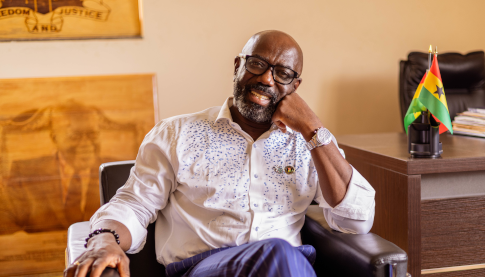
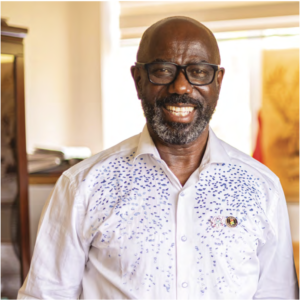
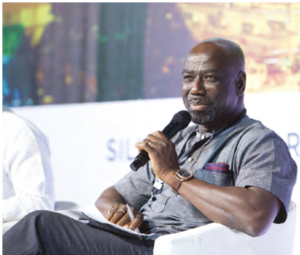


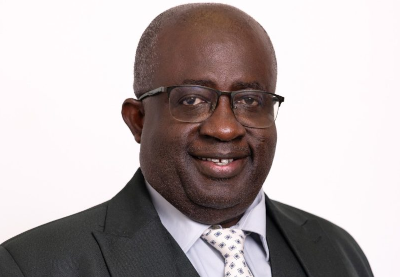
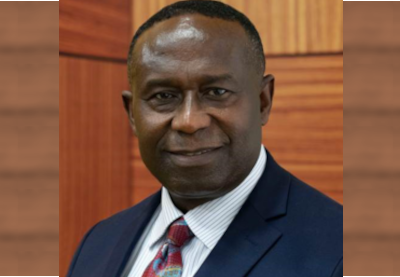

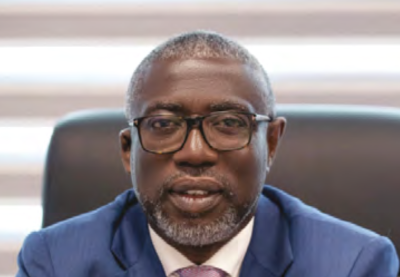





Comments